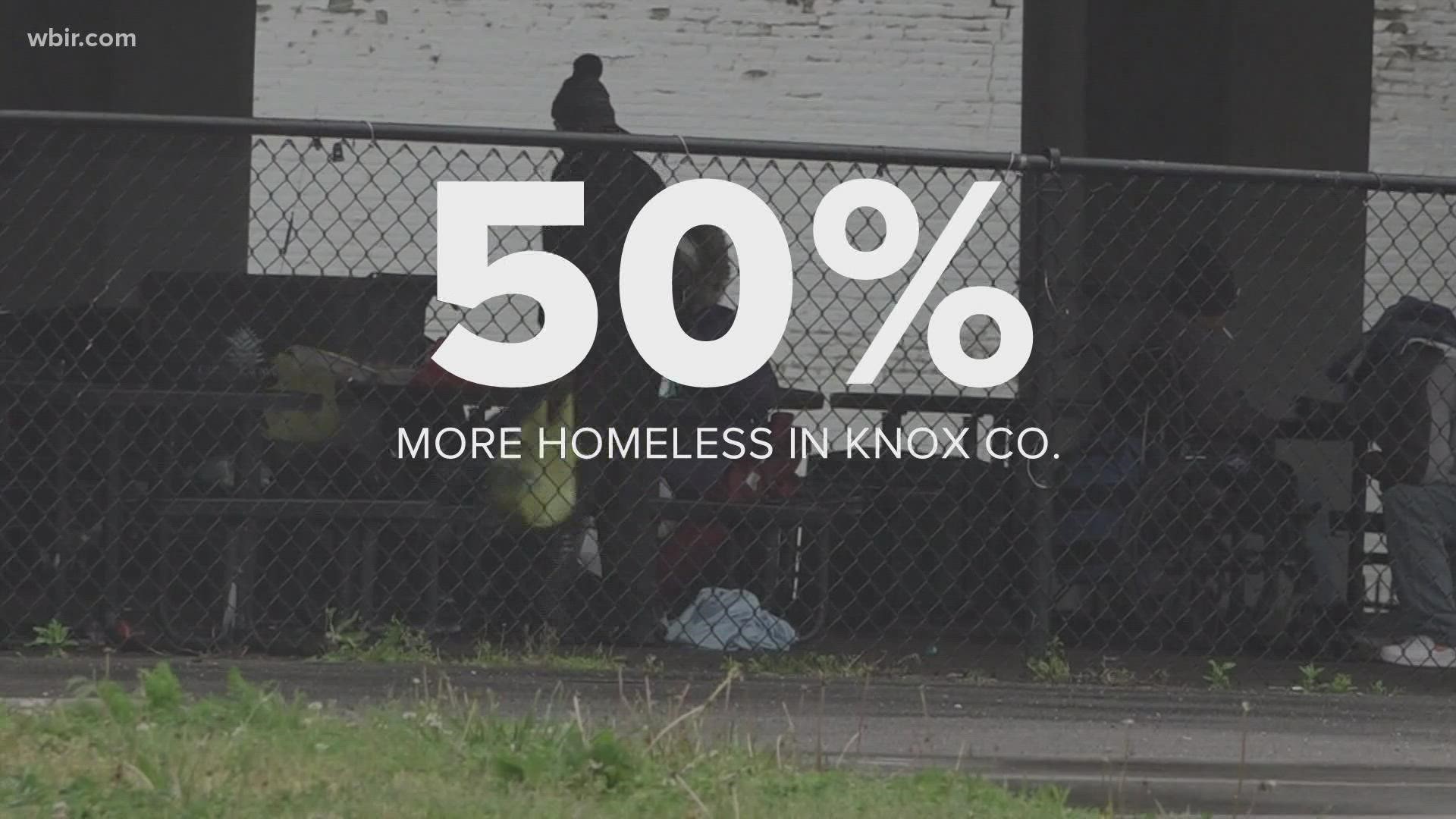KNOXVILLE, Tenn. — City leaders conducted an annual count of the number of people living in the city who don't have homes. On Tuesday, they announced that the number reached a total of 1,178 homeless individuals.
That number was the result of the annual point-in-time count. That count essentially captures a snapshot of the number of unhoused people at a specific moment in time. It helps show how much help the city needs to address the problems contributing to homelessness.
The approach helps identify contributing factors to homelessness better than a cumulative counter, according to officials, because several people can expect to move in and out of homelessness over the course of a year.
The count is reported to the U.S. Department of Housing and Urban Development, which uses the information to release a national report.
It identified 373 unsheltered people in Knoxville, who either could not find space in a shelter or chose not to sleep in one. There were 805 people sleeping in an emergency shelter or transitional housing, according to the count.
This year, outreach workers and volunteers used the Hyperion Point-in-Time Count Software, a mobile app that they said helped improve the accuracy of the count.
“This year’s PIT count also captured households that are historically hard to count, like people who are sheltered in hotels and motels," said Shawn Griffith, Knoxville's Homelessness Services Coordinator.
He was referring to a federally-funded COVID-19 relief program run by the Community Action Committee that gives hotel vouchers to unhoused families, youth and elderly people.
“Homelessness isn't a description of a person so much as of an event, which may be anywhere from one night to multiple years in length,” said Nate First, from the Knoxville Homeless Management Information System. “Every community’s response to homelessness must address these events at both ends, by housing people who are already homeless as well as by preventing episodes of homelessness before they start."
KnoxHMIS reported that the top three reasons people reported for homelessness were a lack of affordable housing, mental health issues and eviction from their previous homes.
"What we really think we're seeing is the latent effects of the pandemic really playing out right now," Griffith said.
10News analyzed eviction numbers from August 2021 to May 2022, after the eviction moratorium ended, and compared it to before the pandemic. The number of evictions was down this year, by almost 800.
Griffith said it may be because of the Knox Housing Assistance program, which helps people who are behind on payments.
The city said it spent more than $14.3 million to build 1,019 affordable housing units since 2017. According to a release, it also spent $4.6 million on upcoming projects, adding an estimated 286 affordable housing units.
KnoxHMIS also reported that fewer beds were available in the city, with utilization rising to 90% in March 2022 compared to 84% in October 2021. They said the total bed capacity was 578 in the city.

